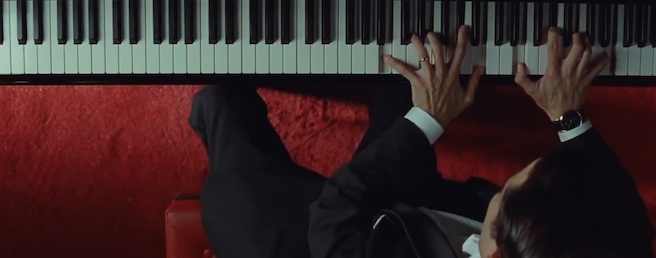DID IT TAKE SOME INSPIRATION FROM DE PALMA'S 'DRESSED TO KILL'?
The brief clip above is an ESPN ad for Captain America: The Winter Soldier, showing two people waiting for an elevator, unaware of the mayhem taking place as they wait. It shares a comedic/tension cross-cutting tone with the elevator scene in Brian De Palma's Dressed To Kill.
Captain America co-screenwriter Stephen McFeely tells Superhero Hype's Edward Douglas how the film's directors, Anthony and Joe Russo, applied other inspirations to the movie, leaving the impression that the elevator scene, at least in part, was perhaps directly influenced by De Palma. "The very first draft of the screenplay looks a lot like the movie," McFeely tells Douglas. "That said, the Russos came in and had all the same and even better touchstones than what we were talking about. They came in and would say, "This feels like a William Friedkin section, feels like a Brian De Palma section," so like that elevator scene was something not quite as interesting as that elevator scene but the Russos came in and went, "Why don't we do this tense built-up elevator thing" and it was all very exciting the whole time we were working on the second draft with them. Chris and I would talk to each other and say, "They're talking a great game. If they can do what they say they want to do, this will be great," and then we had no idea whether the guys from TV would be able to do this. In a way, it was a really great mesh of that they really got the material and they elevated it. It was a real pleasure.
In an interview with Mother Jones' Asawin Suebsaeng, the Russo brothers talk about how the film was influenced by Sydney Pollack's Three Days Of The Condor, itself a film that heavily influenced De Palma, particularly on Mission: Impossible. They also mention several other movie influences, as well as how their film reflects current political anxieties. Here is an excerpt from the Mother Jones article:
According to Joe, the brothers pushed to make their Captain America political thriller even more political and topical than it initially was. "There were already things in the script that just needed to be pulled out to make it more [relevant]," he recalls. One of the film's stars, Robert Redford, was approached for the role in large part because he starred in the 1975 political thriller Three Days of the Condor.
"[That film] was a big influence on this movie," Joe says. "You could really call this movie 'Three Days of Captain America,' if you wanted to. The structure is so similar...We felt like we had a decent shot at getting [Redford] because the script had a political component to it and we thought that might motivate him."
But don't take any of this to mean the film is a stern lecture on American foreign policy. It's thrilling as hell, and also the best to emerge in the recent string of Marvel movies. "We're action fetishists," Joe says. "And we love '70s thrillers." The brothers drew on the influence of some of their favorite action-flick moments: The famous bank heist and shootout in Michael Mann's Heat. William Friedkin's The French Connection. John Schlesinger's Marathon Man. John McTiernan's Predator. Gareth Evans' The Raid: Redemption. (And for the Washington, DC-set car chase in The Winter Soldier, the brothers consulted YouTube, searching for videos of actual car chases. One video—wherein two escaped convicts in Brazil get stuck in traffic and plow through cars as police pursue them on foot—was especially helpful.) "Choreographing action, it's like choreographing a Broadway show," Anthony says.
But at the heart of the explosion and melee -filled film are the political themes, including targeted killing. "The question is where do you stop?" Joe says. "If there are 100 people we can kill to make us safer, do we do it? What if we find out there's 1,000? What if we find out there's 10,000? What if it's a million? At what point do you stop?"
Updated: Saturday, April 5, 2014 10:41 PM CDT
Post Comment | View Comments (2) | Permalink | Share This Post




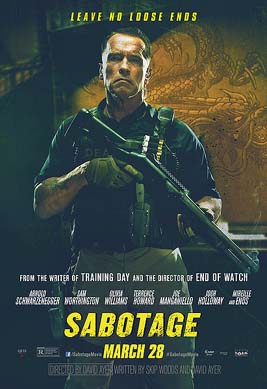
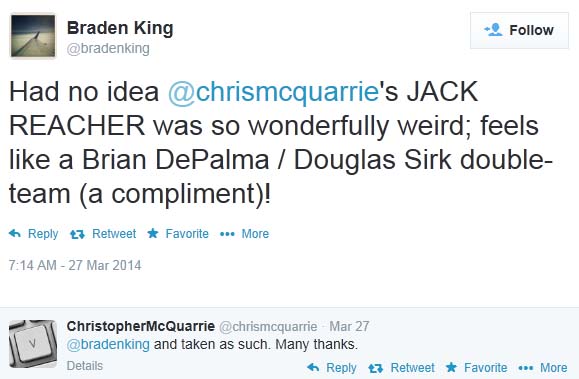

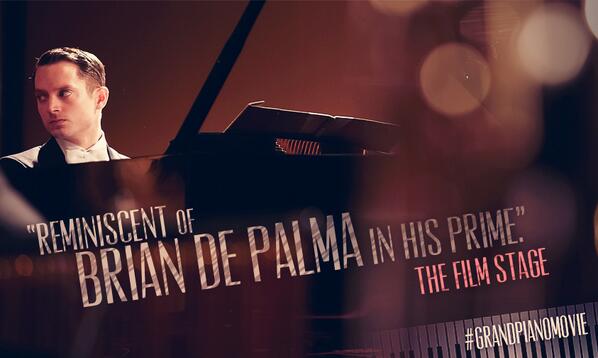
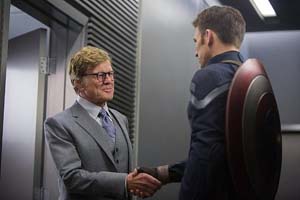 At a press junket for Captain America: Winter Soldier,
At a press junket for Captain America: Winter Soldier, 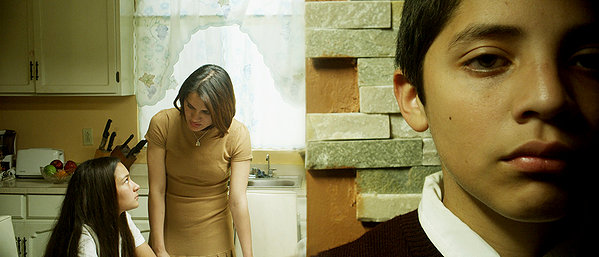
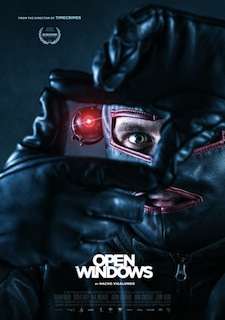 With
With 
